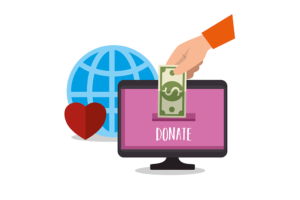Why All Taxes Must Be Abolished: The Case for a Fee-Based Government
When was the last time the government took your money and spent it wisely? Can you name a single government program that runs as efficiently as a private business? If so, you’re in the minority. For most people, the answer is a resounding “never.”
Now, what if I told you we don’t need taxes at all? What if the government operated like a service provider—charging fees for what you use while allowing private companies to compete? Wouldn’t that make more sense? Wouldn’t that keep costs low and efficiency high?
The Problem with Taxes
Taxes are theft. Plain and simple. You don’t get a choice. The government simply takes, spends, wastes, and then demands more. And if you refuse to pay? They’ll fine you, seize your assets, or throw you in prison. Does that sound like a free society to you?
Many argue that taxes are necessary for essential services like roads, police, and schools. But is that really the case? Let’s examine these.
A Fee-for-Service Government
Imagine if the government only charged you for what you use—fees for services. You already pay for roads through gas taxes, which should be used exclusively for road maintenance. Larger vehicles that cause more wear-and-tear naturally pay more because they consume more fuel. Electric vehicles should pay per mile. Similarly, a shipping company would pay more in road fees but would fold that into the cost of shipping packages to consumers—ensuring that those who use the roads most pay for them.
Schools? Families could choose from competing government or private options, paying only for what actually works. This ensures quality through competition.
What about the poor? Well a lot of churches already do this. Why not encourage tech giants like Google, Apple, and Nvidia to establish their own schools? These companies could create educational institutions tailored to their technologies, ensuring future generations are familiar with their products while improving education standards through competition. Churches and religious organizations already offer private schooling, so why not let companies with expertise in technology and innovation enter the market?
Similarly, libraries could be privatized and sponsored by competing companies. Imagine a Google Library or an Apple Library, each offering advanced technology, vast educational resources, and specialized learning tools. Competition would drive innovation, improve access, and ensure better service than what government-run libraries currently provide.
Police services are a legitimate function of government according to the Declaration of Independence, but they should be funded through a fee-for-service model. Those who own larger, more expensive properties or businesses requiring more security would pay higher fees, just as a factory needing more protection would pay more and pass that cost along in the price of its goods. This ensures that police services are directly tied to usage rather than being indiscriminately taxed.
Your property taxes will go way down when the government can only charge you for what you actually use. That means you’ll have much more to donate to churches, charities, or private educational initiatives that align with your values—ensuring that the next generation is taught effectively and morally. History has shown that when this happens people actually give more. But here’s the irony, when people keep more of their own money, they invest it more. This means more jobs, more production, cheaper goods and guess what, less poor people.
The key here is choice and competition. Right now, the government holds a monopoly over nearly everything. You don’t get to choose where your money goes or how it’s spent. That lack of competition results in inefficiency. If the DMV treats you poorly, too bad. If public schools fail your kids, too bad. If the post office loses your package, too bad.
Compare that to private sector alternatives like FedEx and UPS, which compete against each other and the government and consistently outperform the USPS because they must earn your business. Why shouldn’t all government services operate this way?
Private Charity is Six Times More Efficient Than Government Welfare
What about the poor? What about welfare? Won’t people starve without government assistance?
This is one of the biggest lies ever sold to the American people. Private charity is six times more efficient than government welfare. For every dollar donated to a private charity, six times as much aid reaches those in need compared to government programs riddled with bureaucracy. After almost 60 years and trillions of dollars of government charity, there are just as many poor people as when we started. It’s just not working. Worse, there are more destroyed lives than when we started.
The government spends almost $1.2 trillion on government charity. Private charity would replace that with just $200 billion. But you may argue, “Surely you don’t think the church could raise that much.” Yes, I do. Last year alone, conservatives contributed the majority of the $470 billion donated to charity. Voluntary charity, not forced taxation, is the best way to care for the needy. Private charities are lean and accountable—if they waste money, people stop giving, and they fail while another takes their place. Government programs, on the other hand, simply demand more tax dollars.
Who’s more likely to provide meaningful assistance? A local church that knows its community or a bureaucrat in Washington? The answer is obvious.
What Do the Declaration of Independence and the Constitution Say?
Our founders were not idiots. They clearly stated that governments are only instituted to protect inalienable rights—not to give people rights and certainly not to give people free goods and services.
How to Fund National Defense and Federal Services
National defense is one of the few legitimate functions of government. The federal government could charge every individual a basic tax for defense and other essential services, with each expense tied directly to a fee-based system. If the country goes to war, every citizen should pay additional fees—ensuring there is direct accountability and real consequences for unnecessary conflicts. You’d see that fee itemized every year on your tax bill. No more blank checks for endless wars.
Of course, the political class and corporate cronies won’t support this. Why? Because they thrive on the corrupt system of forced taxation and wasteful spending. That’s why we need leaders who serve the people—not their lobbyists and donors.
The Bottom Line
It’s time to stop pretending taxes are necessary. They aren’t. Government should be run like a business—charging fees for services and allowing private competition. And when it comes to helping those in need, private charity has already proven to be far superior to government welfare.
Why are we still funding a broken system? Why are we allowing politicians to squander our money on failed programs?
It’s time to demand a better way.
No more taxes—only fees for services. If the government can’t compete, it shouldn’t be in business at all.
Objections and Rebuttals
Ultra Progressive Liberal Perspective
Objection: Abolishing taxes would dismantle essential public services like education, healthcare, and social safety nets, disproportionately harming the poor and marginalized communities. A fee-based system would create a society where only the wealthy can afford necessary services, worsening inequality.
Rebuttal: The current tax-funded system already fails the most vulnerable. Public schools underperform, government healthcare systems are bureaucratic nightmares, and social welfare programs are inefficient. A fee-based system allows competition, driving down costs and improving quality. Plus, private charity—six times more effective than government welfare—would step in to help those in need without bloated bureaucracy.
Objection: Private companies prioritize profit over people. If corporations take over government functions, essential services will be priced out of reach for many, leading to widespread suffering.
Rebuttal: Unlike government monopolies, businesses must earn customers’ trust or go bankrupt. Private companies competing for services like education and mail delivery already outperform government-run alternatives (e.g., FedEx vs. USPS). Market competition ensures efficiency and customer satisfaction, something the government consistently fails to deliver. Most people would rather deal with a company like FedEx than the USPS. Imagine a privately run DMV or an inspection company that competes to provide the safest and most affordable certifications—one that you can actually sue if they make mistakes. Ever tried suing a city for permitting something unsafe?
Communist Perspective
Objection: Government should control all essential services because private industry is exploitative. Capitalism creates inequality, and letting private companies take over government services would mean the rich get everything while the poor get nothing.
Rebuttal: History has proven that government-controlled economies are failures. From the Soviet Union to Venezuela, centralized planning leads to inefficiency, corruption, and economic collapse. The private sector innovates, reduces costs, and delivers higher-quality services than state-run programs ever could. The goal isn’t corporate monopolization but open competition, where individuals choose the best option for their needs.
Objection: The rich should pay their fair share in taxes to support society. Without taxation, wealth inequality will spiral out of control, leading to even more exploitation of workers.
Rebuttal: The wealthy already fund a disproportionate share of the government, but where does that money go? Wasteful spending, cronyism, and inefficient programs that rarely help those in need. Who says the rich aren’t already paying their fair share? If they have bigger properties, they already pay more. If they drive more, employ more staff, own larger cars, or dine at expensive restaurants, they are already contributing more to the economy and government revenue. Instead of forcibly redistributing wealth through taxation, a fee-for-service model ensures people pay for what they use, while private charity fills the gaps—without government interference or mismanagement.
Republican Perspective
Objection: Some taxes are necessary to maintain national security, law enforcement, and basic infrastructure. The Founding Fathers themselves imposed taxes when needed.
Rebuttal: The issue isn’t whether taxes ever existed—it’s whether they are necessary today. Gas taxes already fund roads, and no one is suggesting the elimination of law enforcement—just that people should pay for the level of protection they need. Those with fewer assets to protect naturally pay less. This eliminates unnecessary taxation while still funding essential services. As for national security, absolutely. But that needs to be a line item that everyone pays as a fee. Corporations, individuals, commercial land owners all pay relative to what the government is protecting. Perish the thought that people get to see what it’s costing them for national security. Of course everyone knows that corporations don’t really pay fees, it just shows up in the price of their products that they sell. But they can pay their employees a bit less now because their employees federal tax rates just became a fraction of what it was.
Objection: Eliminating taxes would remove incentives for businesses to contribute to society. Corporate tax cuts already lead to loopholes where the ultra-rich avoid paying their fair share.
Rebuttal: Businesses contribute to society by creating jobs and providing goods and services—not through forced taxation. If companies were freed from excessive government interference, they could reinvest in expansion, innovation, and higher wages. A fee-based government ensures accountability, unlike the tax-based system where businesses lobby for special treatment at the expense of taxpayers. Charity isn’t what helps the poor—it’s productive, goods-producing labor that uplifts people. Charity is only meant to be a stop gap measure till a majority of the individuals can become productive. A growing productive economy benefits everyone, and when markets operate with moral constraints, prosperity follows.











